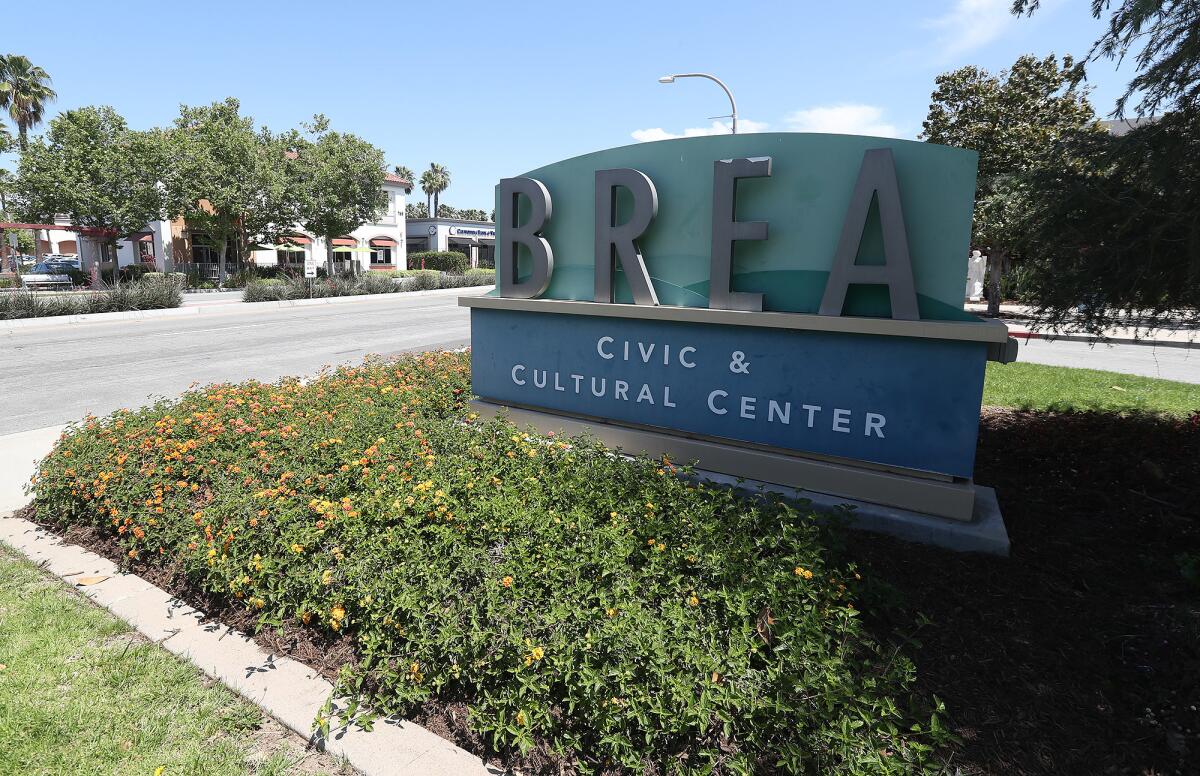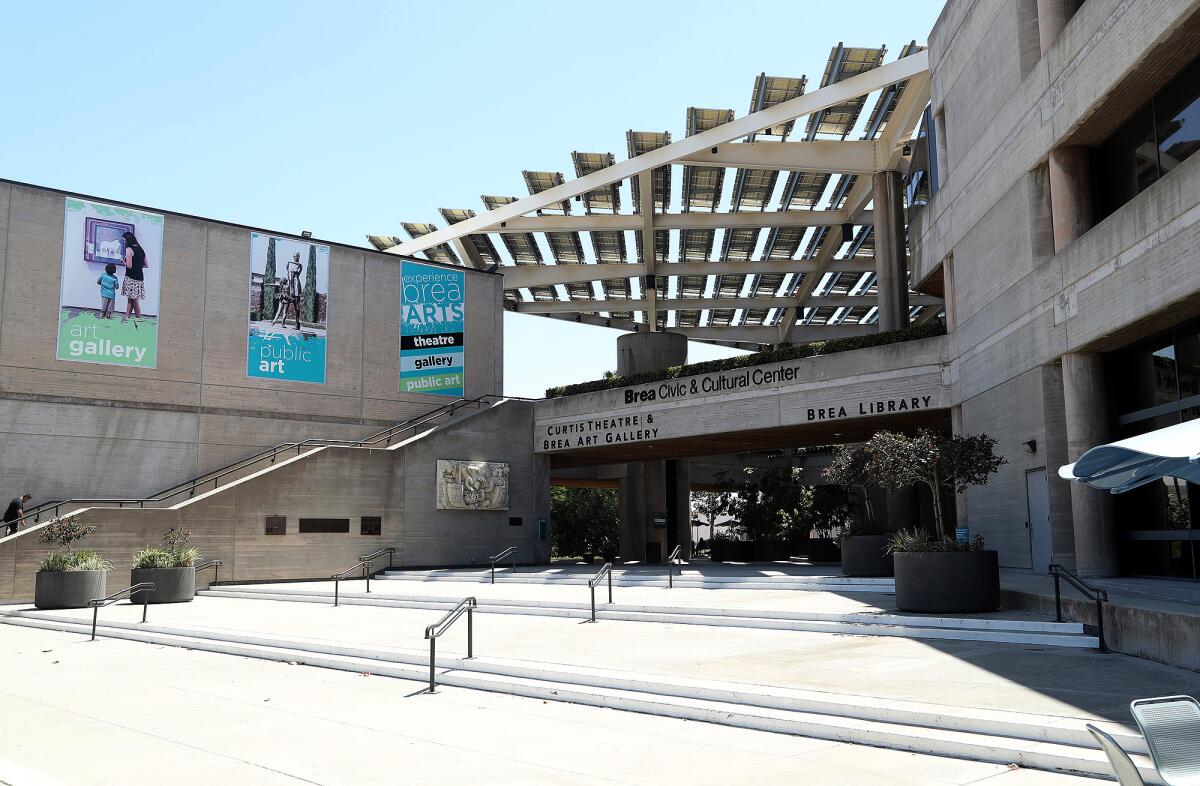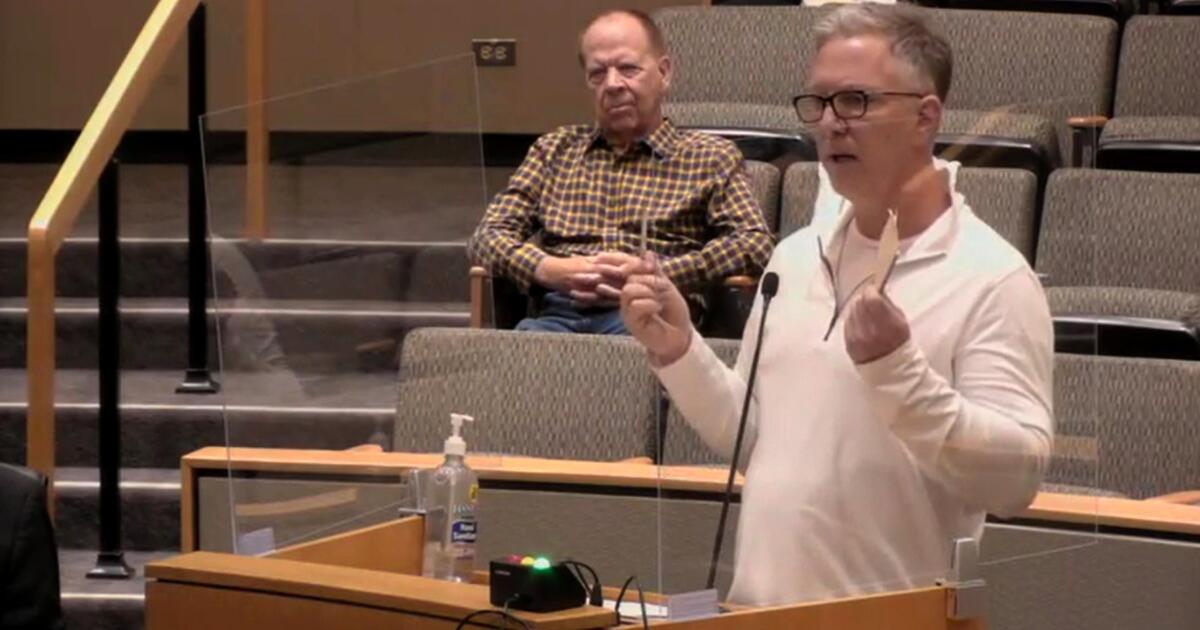Brea backtracks on district elections, opens itself up to litigation

After hosting five public hearings and honing a district map, Brea positioned itself to abolish an at-large election system that has governed the city for more than a century.
The path to district election reform began with a demand letter sent by attorney Kevin Shenkman in 2019 that alleged the city’s at-large elections violated the California Voting Rights Act. Since then, Brea entered an extension agreement with the Shenkman and Hughes firm to avoid costly litigation.
All city council members had left to do was vote for the switch to district elections and turn in the map to the Orange County Registrar of Voters by April 17.
But at the eleventh hour, Brea did an about-face.
“I feel like we’re being blackmailed, strong-armed, scammed,” said Brea Mayor Cecilia Hupp during an April 5 council meeting. “Maybe we need to consider standing up and fighting.”
Hupp wanted Brea to join cities like Irvine and Cypress in shrugging off Shenkman while Santa Monica awaits a pending California Supreme Court decision in its years-long fight against the attorney, which has cost more than $10 million by some estimates.
Shenkman’s Brea letter specifically alleged that at-large elections diluted the political power of the city’s growing Latino and Asian American voting population. It cited, as evidence, the failed council campaigns of Richard Rios in 2004 and Michael Kim in 2014.
“In fact, in the city’s history, there has never been a single Asian city council member in Brea,” the letter stated.
In a turn of events, Rios and Kim filed a lawsuit against Brea in February to prevent district elections from being adopted. Both intended to testify that neither “racially polarized voting” nor “vote dilution” had cost them victory.
Dr. Justin Levitt, vice president of National Demographics Corp., presented the council with a potential catch-22 before their vote.
If council members approved districts, the city may have to defend itself against the Rios and Kim suit; but if they retained at-large elections, Brea faced the prospects of a Shenkman suit without the protection of a $30,000 liability cap.

Councilman Glenn Parker didn’t favor districts but felt it more fiscally prudent to avoid litigation by moving forward with them.
“Don’t mistake my displeasure with my decision as to what I think is in the best interest of the community,” he said. “I believe that we have significant exposure if we say ‘no’ now.”
The map that the council considered created one majority Asian American district with regards to total population but three majority-white districts where it concerned voting-age citizens.
According to 2020 census data, Brea is 39% white, 29% Asian American and 27% Latino; whites also comprise a slim majority of all voting-age citizens.
The current council is all-white, save for Councilman Steven Vargas, a Latino.
Vargas opposed district election reform and was willing to vote against it. He cited Cypress’ recent decision to ignore a Shenkman letter of their own as reason for Brea to rethink districts.
“I think this is a great time to say ‘let’s hit the pause button on this,’” he said.
At the end of an 18-minute discussion, council voted 3-2 to retain at-large elections with Parker and Councilwoman Christine Marick opposing the move.
“We’re very happy with the courage shown by the council,” Steven Baric, an attorney representing Rios and Kim, told TimesOC. “They did what was right for the voters in the city of Brea.”
Baric and his clients will soon assess what to do with the suit after the council’s vote.
In rebuffing district election reform, Vargas, Hupp and seven-term Councilman Marty Simonoff sided with vocal critics who had turned out to council meetings to voice opposition.
Dwight Manley, a downtown Brea property owner, numismatist and former NBA sports agent, was chief among them.

During a March 23 special council meeting, Manley pulled out his checkbook in opposition to district elections.
“To put my money where my mouth is, I will personally contribute or donate to the city right now $100,000 for the first legal fees if we’re sued,” he said. “If no case happens, you can give this money to the senior center.”
The day after council voted to reject districts, Brea City Atty. Terence Boga informed Shenkman of the development by email.
“They want to be sued?” Shenkman replied.
In response to a TimesOC question if he was prepared for such a suit against Brea, Shenkman gave a firm, one-word answer.
“Absolutely,” he said.
District election reform has swept through much of Orange County. Anaheim, Buena Park, Fullerton, Santa Ana, Garden Grove and Orange are just some of the cities that have made the change in recent years, either voluntarily or through a legal settlement.
In 2020, the Brea Olinda Unified School District transitioned to district elections without a fight, but City Hall appears to be gearing up for one.
“Somebody whips out a checkbook and writes a $100,000 check — is he going to write a check for $10 million?” Shenkman asked of Manley. “If he does, what does that say about his business interests and how they would be affected, perhaps, by district elections?”
The attorney remains confident that the California Voting Rights Act is on his side. He dismissed the Rios and Kim suit as nonsensical and called hanging hopes on Santa Monica’s appeal a “last gasp” of incumbent council members seeking to cling to power through at-large elections.
Meanwhile, the City Clerk’s office has the Manley check under “lock and key” until council members decide publicly what to do with it.
“We try really hard not to have to file lawsuits,” Shenkman said. “When a city does something as dumb as Brea, they brought it upon themselves.”
All the latest on Orange County from Orange County.
Get our free TimesOC newsletter.
You may occasionally receive promotional content from the Daily Pilot.




